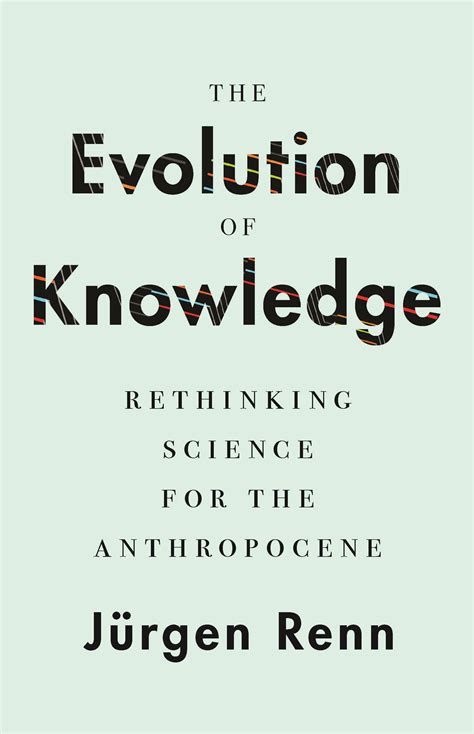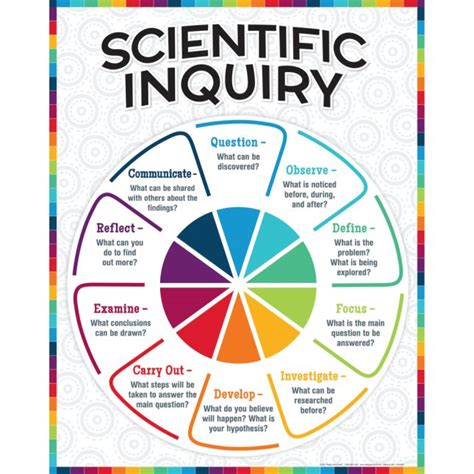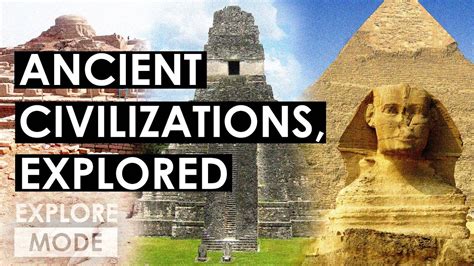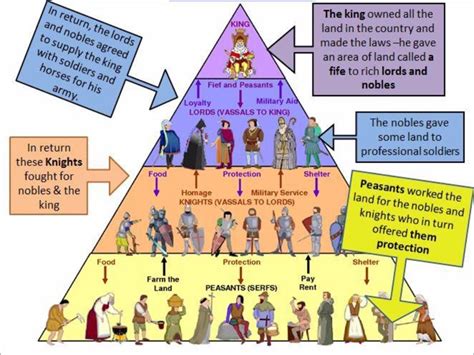Breaking News


Popular News


Explore the rich history of scientific knowledge from ancient civilizations to modern discoveries, including revolutionary ideas and the role of the Renaissance.Have you ever wondered how our knowledge of the natural world has evolved over time? From the early origins of scientific inquiry to the modern era of groundbreaking discoveries, the history of scientific knowledge is a fascinating journey that has shaped the world as we know it today. In this blog post, we will delve into the rich and complex history of scientific inquiry, exploring the role of ancient civilizations in laying the groundwork for modern science, the revolutionary ideas that emerged during the Middle Ages, the scientific advancements of the Renaissance, and the modern era of scientific discoveries. Join us as we embark on a captivating exploration of the history and evolution of scientific knowledge, uncovering the pivotal moments and influential figures that have shaped our understanding of the world around us.
Contents

Scientific inquiry has its roots in the very beginnings of human civilization. The early origins of scientific inquiry can be traced back to ancient civilizations such as Mesopotamia, Egypt, and Greece. These civilizations laid the groundwork for the development of scientific thought and methodology through their observations of the natural world and attempts to understand and manipulate it.
In Mesopotamia, for example, ancient astronomers carefully observed the movements of the stars and planets, developing a rudimentary understanding of celestial mechanics. Similarly, in ancient Egypt, early physicians and pharmacologists made detailed observations of the human body and the effects of various plant-based remedies. These early efforts to understand the world around them and explain natural phenomena formed the basis for the scientific inquiry that would come to define the field of science.
The role of ancient civilizations in the development of scientific inquiry cannot be overstated. It was through their efforts that the foundation was laid for the systematic investigation and understanding of the natural world. The early origins of scientific inquiry mark the beginning of humanity’s ongoing quest to unravel the mysteries of the universe and improve our understanding of the world we inhabit.

Ancient civilizations played a crucial role in the development and advancement of scientific knowledge. From ancient Mesopotamia to Egypt, Greece, and China, these early societies laid the foundation for many of the scientific principles and practices that are still used today. The contributions of these ancient civilizations to science are truly remarkable.
One major area where ancient civilizations made significant contributions to science was in the field of astronomy. The Babylonians, for example, were skilled astronomers and developed a complex system of celestial measurements and observations. They were able to accurately predict celestial events such as lunar and solar eclipses, and their knowledge greatly influenced later civilizations.
Another key area in which ancient civilizations impacted science was in the development of mathematics. The ancient Egyptians, for instance, were highly skilled mathematicians and developed many fundamental concepts in geometry and arithmetic. Their innovative mathematical techniques were later adopted and expanded upon by the Greeks and other ancient cultures.
Moreover, ancient civilizations also made important contributions to the field of medicine. The ancient Chinese, for example, developed a sophisticated system of herbal medicine and acupuncture that laid the groundwork for modern medical practices. Similarly, the Greeks made significant advances in the study of anatomy and physiology, which greatly influenced the development of Western medicine.
| Ancient Civilization | Scientific Contribution |
|---|---|
| Mesopotamia | Astronomy and Mathematics |
| Egypt | Medicine and Mathematics |
| Greece | Astronomy, Mathematics, and Medicine |
| China | Astronomy and Medicine |

The Middle Ages, also known as the medieval period, was a time of great change and advancement in the field of scientific knowledge. During this time, many revolutionary ideas emerged that laid the foundation for the modern scientific method. One of the most significant developments was the rise of universities in Europe, which provided a platform for the exchange of ideas and the pursuit of knowledge.
One of the revolutionary ideas that emerged during the Middle Ages was the concept of experimentation and observation as a means of understanding the natural world. This departure from the traditional reliance on ancient texts and religious authority paved the way for the development of modern science. The work of scholars such as Roger Bacon and William of Ockham helped to popularize the idea that knowledge should be based on evidence and reason, rather than on faith alone.
Another key development during the Middle Ages was the translation of ancient Greek and Arabic texts into Latin. This allowed European scholars to access the advances made by civilizations such as the Greeks, Romans, and Arabs, and to build upon their knowledge. The reintroduction of works by thinkers such as Aristotle and Ptolemy greatly influenced the development of scientific thought in Europe.
In addition to these advancements, the Middle Ages saw the rise of new fields of study, such as alchemy, astrology, and astronomy, which would later evolve into the modern sciences of chemistry and physics. These disciplines laid the groundwork for the scientific revolution that would take place in the following centuries, marking a pivotal moment in the history of scientific inquiry.

During the Renaissance, there was a significant shift in the way people viewed the world and their place in it. This period saw a resurgence of interest in science, leading to new discoveries and advancements in various fields. The Renaissance was a time of great intellectual and cultural change, and it laid the foundation for many of the scientific developments that followed.
One of the most important figures of the Renaissance was Leonardo da Vinci, who is often considered one of the greatest minds in history. Da Vinci made significant contributions to the fields of anatomy, engineering, and astronomy, and his work laid the groundwork for many of the scientific advancements that followed. His detailed anatomical drawings and observations of the natural world were groundbreaking and helped to advance scientific knowledge during this period.
Another key development during the Renaissance was the invention of the printing press, which had a profound impact on the spread of scientific ideas. The printing press allowed for the mass production of books and the dissemination of knowledge to a wider audience. This led to an increase in the exchange of scientific ideas and the development of new theories and concepts.
| Scientific Advancements | Key Figures |
|---|---|
| Advances in medicine and anatomy | Leonardo da Vinci |
| Development of new scientific theories | Nicolaus Copernicus |
| Exploration and discovery of new lands | Christopher Columbus |

The modern era of scientific discoveries has been marked by incredible advancements in technology, medicine, and our understanding of the natural world. With the development of the scientific method and the rise of modern institutions dedicated to scientific research, the 17th and 18th centuries saw a surge in groundbreaking discoveries that laid the groundwork for many of the scientific principles we rely on today.
During this time, scientists such as Isaac Newton, Galileo Galilei, and Johannes Kepler made pivotal contributions to physics and astronomy, formulating laws and theories that are still fundamental to our understanding of the universe. The invention of the microscope and the development of germ theory revolutionized the field of medicine, leading to significant advancements in healthcare and disease prevention.
The modern era of scientific discoveries has also been characterized by the rapid expansion of scientific knowledge across various disciplines, from chemistry and biology to geology and engineering. The Industrial Revolution further fueled scientific innovation, driving progress in manufacturing, transportation, and communication technologies that continue to shape the world we live in today.
As we look to the future, the modern era of scientific discoveries serves as a testament to the transformative power of human curiosity and ingenuity, driving us to push the boundaries of what we know and inspiring continued exploration and innovation in the pursuit of knowledge.

What is the history of scientific knowledge?
Scientific knowledge has been accumulated over centuries, starting from ancient civilizations such as the Greeks and the Egyptians, and evolving through the Middle Ages and the Renaissance.
How has scientific knowledge evolved over time?
Scientific knowledge has evolved through the development of scientific methods, technological advancements, and the contributions of countless scientists and researchers.
What are some key milestones in the history of scientific knowledge?
Key milestones include the development of the scientific method, the Copernican revolution, the discovery of the laws of motion, and the theory of evolution, among others.
How has the understanding of scientific knowledge influenced society?
The understanding of scientific knowledge has led to advancements in technology, medicine, and our understanding of the natural world, shaping the way we live and interact with our environment.
What are some current trends in scientific knowledge?
Current trends include the integration of technology in research, interdisciplinary collaboration, and a growing emphasis on sustainability and ethical considerations in scientific advancements.
What are some challenges in the pursuit of scientific knowledge?
Challenges include funding constraints, ethical considerations, and the need to communicate complex findings to the public in a way that is understandable and actionable.
How can individuals contribute to the advancement of scientific knowledge?
Individuals can contribute by pursuing careers in the sciences, supporting scientific research and education, and staying informed about scientific developments and policies.